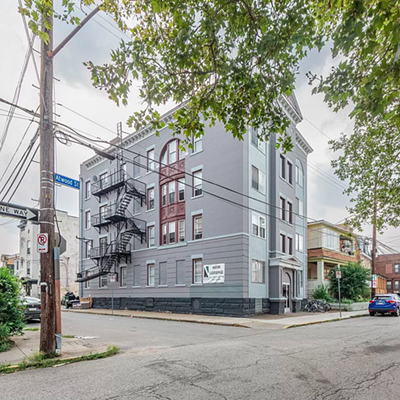There are probably as many answers to this question as there are people in the city. On the bright side, though, that means the number of answers is getting smaller every day. At the rate we're going, we should have 100 percent consensus any day now.
For now, we just have a cycle of blame. The mayor blames Republicans in the suburbs. Republicans in the suburbs blame the city workers. And the city's unions blame the mayor. And of course, they're all right, which means they're also all in the wrong.
The conservative Allegheny Institute, for example, faults city workers. Last year, the Institute compared Pittsburgh to nine other "Rust Belt" cities, including Cincinnati, Detroit and Cleveland. Pittsburgh's government cost the average resident $1,189 a year, the institute found -- $142 more that the average resident of the other cities in the sample.
Still, there are costs to running a city on the cheap. The police department, for example, has been cut to the point where, according to a study released in May by the International Association of Chiefs of Police, there is already a "need for a more visible, powerful street presence."
So why are taxes so high? Put simply, not enough people are paying them.
For starters, more than a third of the city's land is owned either by non-profits like UPMC or by a government agency. Some of Pittsburgh's recent high-profile developments -- like the Hillman Cancer Center and publicly-financed PNC Park -- pay nothing in property taxes.
Every time a non-profit expands, more property comes off the tax rolls. Over time, that means the rest of us will pay more. To take just one example, Duquesne University paid more than $22 million on an apartment complex last year, and when it did so, the city lost some $600,000 of tax revenue. Changes to state law -- mostly pressed by Republican legislators in the 1990s -- make it almost impossible to do much about that. The city's non-profits have pledged to come up with $6 million a year to help bail the city out. But the deal hasn't been finalized.
Still, at least the University of Pittsburgh hasn't decided to move to Mt. Lebanon. A lot of its neighbors have. Pittsburgh has lost about half its population since World War II. Many of those folks moved to the suburbs, partly because they thought taxes were too high. On the other hand, city taxes are high partly because of the folks moving to the suburbs.
Outgoing Mayor Tom Murphy is fond of arguing that the city's population is still 600,000 people -- at least part of the time. The mayor's office estimates that as many as 270,000 commuters come into the city to work; during that time they naturally expect the basic services residents require: rapid fire and police service, working street lights. But commuters don't pay as much for those services. One way the city has tried to dun those commuters is by raising the parking tax to the absurd rate of 50 percent, higher than the tax levied even in New York City.
Life was supposed to get better when the city got not one but two financial oversight panels. The first, the poetically named "Act 47 Team," was chosen by Gov. Ed Rendell. The second, our grandiosely titled "Intergovernmental Cooperation Authority," was foisted on us largely by shifty Republicans in Harrisburg, who for some reason don't trust the shifty Democrats in Pittsburgh.
Theoretically, the two boards could play a good cap/bad cop relationship, with the ICA demanding efficiency. But the ICA's credentials have so far proven suspect: Its executive director earns $168,000 a year, almost twice what the mayor himself earns. Meanwhile, the ICA has sued the city and the Act 47 folks over a dispute involving the firefighters contract. Since all these parties are public agencies, you and I are paying both to sue the city and to defend the city from the suit. According to a June 25 Pittsburgh Post-Gazette story, the lawsuit's cost is at least $800,000 already.
Ironic, then, that the ICA espouses cooperation between the city and county governments. Yet some kind of merger may be the only way to ensure that Pittsburgh gets taxation while suburbanites get representation. I have doubts about a merger, in part because I think it would weaken the city's black vote. But the past few years have taught us that we all -- black and white, suburbanite and city-dweller, Democrat and Republican -- have the power to make each other miserable anyway.










